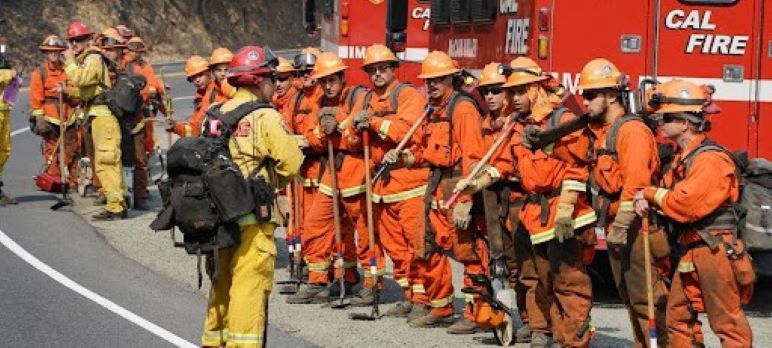CA Lawmakers Work to Raise Pay for Incarcerated Workers

The roots of forced prison labor in the United States date back to the post-Civil War era. With the 13th Amendment abolishing slavery “except as a punishment for crime,” states — particularly in the South — exploited this loophole to essentially re-enslave Black Americans through the criminal justice system. Convict leasing became widespread, subjecting prisoners to brutal conditions as they were rented out to private companies for labor.
In California, this legacy continues. Despite advances in civil rights, the state’s prison system still uses inmates for labor under the pretense of rehabilitation. Tasks range from fighting wildfires to manufacturing goods, often for pennies an hour or no pay at all.
Despite California voters’ rejection of Proposition 6 last fall, which would have amended the state constitution to abolish involuntary prison labor, Assemblymember Isaac Bryan (D55 - Los Angeles) believes he can get two bills passed that would improve wages for individuals inside jail and prison.
“I think that (coverage of incarcerated firefighters during the January 2024 Southern California wildfires) reopened this conversation in the consciousness for folks about what incarcerated labor can look like and how undignified not paying folks a human wage — you know, a basic wage that is dignified — what that says about all of us," said Bryan, vice chair of the Legislative Black Caucus.
Bryan sponsors Assembly Bill 247 which would impose $19 per hour pay for incarcerated firefighters whenever their work assignment places them in active fire incidents. “Very few people realize they make $5 to $10 a day doing that work, and so legislation to increase those wages has received kind of resounding support,” said Bryan.
The other measure, Assembly Bill 248, would remove a decades-old statewide wage cap of $2 per eight-hour shift for county jail inmate workers, many of whom have not been convicted of any crimes and are awaiting trial. Most California county jails do not pay incarcerated workers any wages whatsoever. But when they do, they must abide by the $2 limit. “For those quick at math, that’s 25 cents an hour,” explained Bryan. “At that rate, combined with predatory commissary prices, it would take you a full business week to be able to afford a two-ounce tube of toothpaste and a bag of hot Cheetos.”
Assemblymember Josh Hoover (D7 - Folsom), a Republican serving a district known for its century-old prison, explained his support for AB 248. “We already have a $2 wage in the code, which means we have already acknowledged that there should be a wage paid,” Hoover said. “I think it makes sense for local governments to be able to determine what that wage is, based upon the needs of their community.”
Depriving incarcerated laborers of any substantial wage also limits their ability to pay court-mandated victims’ restitution fees, Bryan said. Despite working full time — and often even overtime, seven days a week — many prisoners continue to carry the debt of restitution.
Both of Bryan’s measures build on the Black Caucus’ efforts over the past several years to tackle the state’s history of discrimination against African Americans and to implement recommendations from the California Reparations Task Force.
Ending forced prison labor is not only a moral imperative but also a practical one. The hidden costs of this system are borne by taxpayers through increased health care expenses, legal challenges and the long-term social costs of recidivism. By abolishing forced labor, resources can be redirected toward rehabilitation and education programs that concretely helps incarcerated persons reintegrate into society, reducing re-offense rates and ultimately saving taxpayer dollars.










